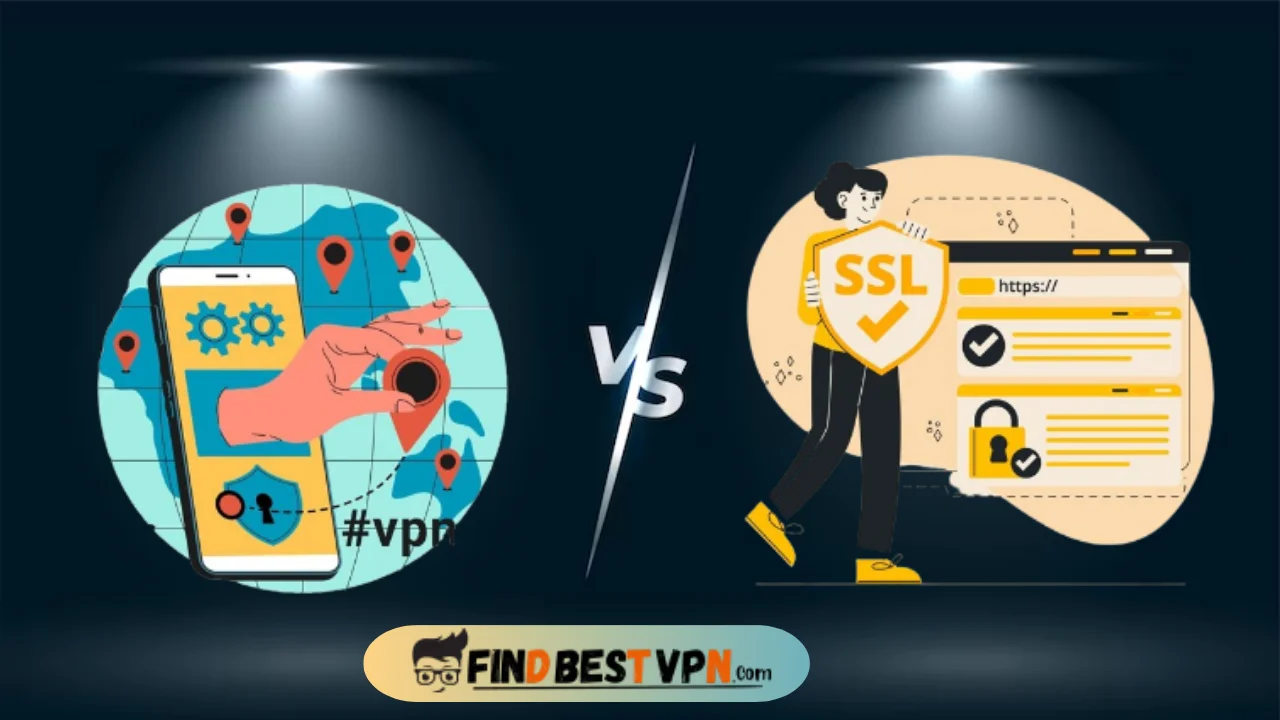
VPN vs HTTPS: Which Offers Better Online Security?
Online security is incredibly vital if you’re connected to the internet. You may face many threats if your connection isn’t safeguarded, so internet users turn to several tools for their protection.
VPNs and HTTPS are crucial technologies that accomplish the same goals differently. Both technologies protect you and your privacy; the fantastic news is that you can utilize both effortlessly.
In this article, you will be able to understand whatVPN vs HTTPSare, how they work, their benefits and drawbacks.
What Should You Know About The Term HTTPS?
Web browsers communicate with servers via a connection mechanism known as the Hypertext Transfer mechanism Secure (HTTPS). The word “secure” stands out as the most crucial, as HTTPS uses TLS encryption technology to protect sensitive information transmitted between users and websites. Both sender and receiver identities and the data’s integrity are authenticated and checked.
InHttps vs VPN, your ISP or snooper can only view your HTTPS URL, not the content. Thus, online purchasing websites use HTTPS. If not, your name, address, and credit card information may be stolen.
How Do You Verify That An HTTPS Site Is Secure?
If you want to feel safe about sharing personal information online, make sure the site you’re on supports HTTPS. Checking whether or not a link’s URL starts with “http” or “https” is the quickest way to see if the site employs HTTPS. A lock symbol in front of the URL is another indicator of security.
When an HTTPS-enabled website displays a padlock icon, visitors can click on it to learn more about its security certificate. While it’s true that sites dealing with financial information must utilize HTTPS, any website that collects information about its visitors should do so using the more secure HTTPS protocol.
Benefits Of HTTPS
There are various reasons why HTTPS is an important protocol. Here are just a few examples:
Encryption
The encryption offered by HTTPS is its most compelling feature. Data that gets communicated using HTTPS is always encrypted, so you’re confident of having secure connections. Because of the encryption, hackers that intercept your traffic won’t be able to read it.
Security
With HTTPS, no user data is saved on the client system, and the possibility of experiencing data theft is considerably reduced.
Verification
Websites that employ HTTPS have certificates that verify their compliance with industry standards. If the credentials aren’t there, you’ll be warned of an unprotected connection. This ensures that your information will reach its intended recipient.
Verification Of Data
HTTPS validates data using handshaking. All data transfers are checked before they occur. The operations would be stopped if the validations fail.
What Should You Know About The Term VPN?
A Virtual Private Network (VPN) can keep your personal information and identity safe when surfing the web. In addition, it allows you to avoid being blocked by things like firewalls and geographical areas.
How Exactly Does a VPN Work?
To connect to a VPN server in a nation of your choosing, you must first download and install VPN software from a reputable provider on your computer.
This prevents anyone, not even your ISP, from seeing what you do online, even though your connection to the VPN server still travels via them, because an encrypted “tunnel” connects your device to the server.
Next, the VPN server receives your connection requests, decrypts them, and transmits them to the relevant web server. The data you’ve requested is then encrypted and sent to your gadget. Once the VPN client receives it, it decrypts it for you.
Additionally, a VPN will conceal your true Internet Protocol address. When you link to a VPN server, its IP address takes the place of the one your ISP normally uses.
VPN Benefits
VPN works amazingly when connected with HTTPs. Here are some benefits of using a virtual private network (VPN).
Anonymity
Monitoring someone’s whereabouts over the internet is less difficult these days. ISPs, advertisers, governments, and hackers can monitor your online activity.
Https vs VPN Reddit, on the other hand, masks your online identity. Encrypting your data and hiding your IP address lets you access the web without being tracked. Anyone trying to access your VPN’s IP address would see your computer.
Geo-Restrictions Getting Past Them
Sometimes, they stumble across videos, songs, and articles restricted in our country. Depending on copyright constraints and licensing requirements, websites and other online services enable geo-blocking depending on your IP address. In addition, blocks are frequently arranged based on your country or location.
Firewalls And Security
Sites like Twitter, Instagram, and Facebook are blocked by censorship and firewalls in several countries. A VPN is the only way to evade such restrictions. You must check aboutVPN vs TLS to protect your data and make it secured.
Premium VPN services use the latest encryption technologies to protect your data transmission. They provide additional layers of safety, including a kill switch and safeguards against data leaks.
VPN Over HTTPS: The Contrast
VPN vs HTTPShave certain commonalities but also have some key distinctions. Take into consideration the following examples:
- First, virtual private network (VPN) services and HTTPS use encryption to keep your data confidential. VPN encrypts the entire traffic from your device; however, HTTPS safeguards data transit between your browser and the website’s server.
- A VPN works as long as you’re connected to a server; however, HTTPS requires configuring your browser and the websites you visit. This is anotherVPN vs HTTPSdebate.
- While HTTPS will not mask your location, a virtual private network (VPN) will allow you to make it look like you’re in practically any place on the globe.
- A virtual private network (VPN) protects your online privacy by masking your IP address and traffic from your ISP, authorities, and hackers. On the other hand, only HTTPS encrypts sensitive information you enter on websites.
- Since the SSL certificate for thisVPN vs HTTPScomparison was supplied by the site’s owner, you have limited control over HTTPS.
- VPNs provide superior, military-grade encryption that is incomparable to HTTPS.
- Some VPN services use the same port as HTTPS to make VPN connections seem like ordinary traffic.
Conclusion: VPN Vs HTTPS
In above we have discussed aboutVPN vs HTTPS for better usage.HTTPS is safe enough if your sole purpose is to protect your data. Passwords and financial information are hidden from the server during transmission. When you do online banking or DNS lookups, anyone can see which bank you use, but not personal information.
An encrypted https VPN tunnel protects all of your data while in transit. Your privacy and security are protected from prying eyes. Why not have the best of both worlds if you want the internet to be secure for all users?



















